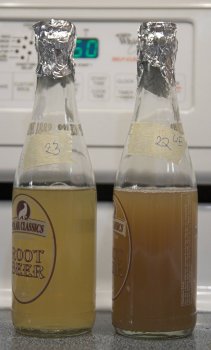mrduna01
Well-Known Member
So I've had this issue since starting to Brew. I do a mix of all grain and extract... extract when I want the convenience of it. My all grain beers usually come out great but all extracts have this absolutely horrible off flavor. I can't put my thumb on what the flavor taste like so I can't describe it but every one has the same bad taste. I was thinking maybe something to do with the water but it doesn't make since that the all grain taste fine. Being in louisville ky where we have some of the best water in the country I wouldn't think it to be that but not sure. I treat the water with Camden for cloramine and that's it. It's definitely not anything to do with cleaning or sanitize process as it only happens with extract.
Seems also like the flavor is a lot more up front with darker beers... did an extract pale ale and then a brown ale on consecutive days. The pale ale had that taste in the background but not too overpowering to drink... the brown ale is sitting in a keg just until I get around to dumping it. Also no amount of aging has any affect on it as I have let some sit In a keg for months and it does not dissipate. HELP!
Sent from my KFSOWI using Home Brew mobile app
Seems also like the flavor is a lot more up front with darker beers... did an extract pale ale and then a brown ale on consecutive days. The pale ale had that taste in the background but not too overpowering to drink... the brown ale is sitting in a keg just until I get around to dumping it. Also no amount of aging has any affect on it as I have let some sit In a keg for months and it does not dissipate. HELP!
Sent from my KFSOWI using Home Brew mobile app


